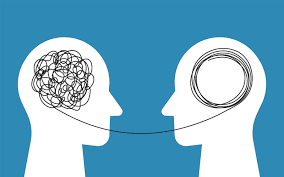If you are considering family therapy, it is important to understand the different approaches that are available. One of the most popular approaches is Bowenian family therapy. Developed by Dr. Murray Bowen, this approach focuses on the relationships within a family system. In this blog post, we will discuss the basics of Bowenian family therapy and what you can expect if you decide to pursue this type of treatment.`
Contents
What Is Bowenian Family Systems Therapy?
Bowenian family systems therapy, also known as Bowen theory. It is a form of psychotherapy that views the family system as a whole rather than focusing on individual members. It focuses on understanding how interactions between family members create tension and distress. The goal of this type of therapy is to help families understand their patterns of interaction. So they can make positive changes in their relationships and reduce stress.
Bowenian family systems therapy is based on the theories of Dr. Murray Bowen, a psychiatrist who developed the theory in the mid-20th century. He believed that families are connected and interact with each other within an emotional system. Family members influence one another’s behavior and feelings without even realizing it.
Bowen’s theory suggests that when family members are too close and over-involved in each other’s lives, they become enmeshed and this can create tension. He also believed that families need to cultivate individuality within the family unit so each person can grow and develop their own identity.
What Is The Primary Goal Of Bowenian Family Therapy?
When it comes to Bowenian family therapy, the primary goal is to reduce emotional reactivity and improve communication within families. The focus of this type of therapy is on understanding how each family member’s behavior, thoughts, and feelings influence one another. The therapist works with the family as a whole unit to help them gain insight into their dynamics.
According to Bowenian family therapy, the key is to look at how the family functions over time. This includes examining how generations prior to the current family have interacted with each other and contributed to the current familial dynamic. With this insight, Bowenian therapists can help individuals within a family gain awareness of their own behavior. As well as how they contribute to conflicts between family members.
Therapists will often use the concept of “differentiation” to help families understand their issues. Differentiation is defined as a person’s ability to remain emotionally balanced and express their own thoughts. And feelings without being overwhelmed by the emotions of other family members.
What Are The Four Stages Of Family Therapy?
There are four stages of family therapy, which include assessment, restructuring, valuing change, and generalization phase. Let’s each phase in-depth.
Assessment Phase
During this phase, the therapist will assess the individual and family members to determine their problems, strengths, and behaviors. The therapist will then create a plan with goals for each member of the family to help them work towards a common goal. For example, the therapist may suggest that family members take part in various activities such as role-playing, games, or activities to help them become more comfortable with each other.
Restructuring Phase
During this stage, the therapist will work to restructure the family by restructuring harmful patterns and behaviors. The goal is to build healthier relationships between family members and to create an environment where everyone can discuss their thoughts and feelings without fear or judgment. During this phase, the therapist will also help family members identify their strengths and utilize them in a productive manner.
Valuing Change Phase
During this stage, the therapist will help the family recognize any changes they have made during therapy. This includes both positive and negative changes and will help the family realize that growth is possible. The therapist will also encourage the family to take part in activities that promote positive change, such as self-reflection, relaxation exercises, and coping strategies.
Generalization Phase
 This is the final stage of therapy where the positive changes made during earlier phases are integrated into everyday life. The therapist will help the family make sense of the changes that have taken place. And how those changes can be used to improve their relationships. During this phase, the therapist is also likely to encourage open communication among family members and provide positive reinforcement for any improvements they notice in each other.
This is the final stage of therapy where the positive changes made during earlier phases are integrated into everyday life. The therapist will help the family make sense of the changes that have taken place. And how those changes can be used to improve their relationships. During this phase, the therapist is also likely to encourage open communication among family members and provide positive reinforcement for any improvements they notice in each other.
All in all, family therapy is a powerful and effective tool for helping families find balance and harmony. By understanding each of the four stages of family therapy, families can better understand how to use these techniques in their journey toward healing and growth.
What Techniques Does Bowenian Family Therapy Involve?
If you are looking for a way to help your family work through any issues, Bowenian family therapy may be the right choice. Here are different techniques that Bowenian family therapists use to help families:
1. Encouraging Differentiation of Self – One of the goals of Bowenian therapy is to encourage the family members to separate themselves from their family ties and explore who they are as individuals. This can be done by helping them identify their own values, beliefs, and goals that may be different from those of their family.
2. Increasing Family Communication – Another goal is to encourage families to communicate better with each other. This involves teaching them communication skills, such as active listening, giving feedback, and expressing feelings without attacking or blaming others. It also encourages them to talk about their expectations of one another.
3. Exploring Family Dynamics – In Bowenian family therapy, the therapist also helps families explore the roles each member plays in the family and how these roles can cause tension. The therapist will help them identify any negative or dysfunctional patterns that exist so that they can work on changing them.
4. Fostering Self-Awareness – Self-awareness is key in Bowenian family therapy. The therapist will work on helping each individual become more aware of their own feelings and thoughts, as well as those of their family members. This can help them develop better conflict-resolution skills and improve communication overall.
5. Working Through Grief and Loss – If a family has experienced any kind of loss or trauma, Bowenian family therapy can help them cope. The therapist will work on helping each person process and accept the grief in order to move forward.
By using these techniques, a Bowenian family therapist can help families improve their communication and relationships. They can also provide a safe space for everyone to express themselves without fear of judgment or criticism. If your family is dealing with any issues, Bowenian family therapy may be the right choice for you.
What Conditions Does It Specifically Treat?
 There are several things that can be treated with Bowenian family therapy:
There are several things that can be treated with Bowenian family therapy:
1. Communicational Problems: Bowenian family therapy can be used to help improve communication between family members, allowing them to better express their needs and feelings in a respectful way. It also helps families identify underlying issues that are causing conflict and address them constructively.
2. Mental Health Issues: It can be useful in treating mental health issues such as depression, anxiety, and post-traumatic stress disorder. It also can help family members learn how to better understand each other’s emotions. And provide support during difficult times.
3. Substance Abuse: This therapy helps treat substance abuse by looking at the underlying causes of the problem. And helping family members develop healthier ways of coping and communicating with each other.
4. Conflict Resolution: Another way, it can also be used to help families learn how to resolve conflicts in a healthy manner. By understanding the underlying causes of conflict, families can create positive solutions that benefit everyone involved.
5. Relationship Problems: Finally, this therapy can help families improve their relationships with each other, teach them how to better express feelings, and work through issues in a constructive way. It also helps bring the family closer together by increasing understanding and respect for one another.
Therefore, Bowenian family therapy has a wide range of uses and can be beneficial for families in many different ways. If you’re looking for a way to improve your relationships or resolve conflicts, this could be the right approach for you.
Conclusion
In conclusion, bowenian family therapy is an effective tool that can be used to help families of all types overcome their issues and find common ground. By focusing on communication, understanding, and change, Bowenian family therapy can help build stronger relationships in families and create more harmonious environments. It is important to recognize the benefits of this type of therapy.
And to understand that every family is unique and requires its own approach when it comes to resolving issues. With Bowenian family therapy, families can learn to work together as a unit and create healthier dynamics within the home.
For more information, please contact MantraCare. Parenting is a challenging yet rewarding experience that is crucial for the development and well-being of a child. If you have any queries regarding Online Parenting Counseling experienced therapists at MantraCare can help: Book a trial therapy session


